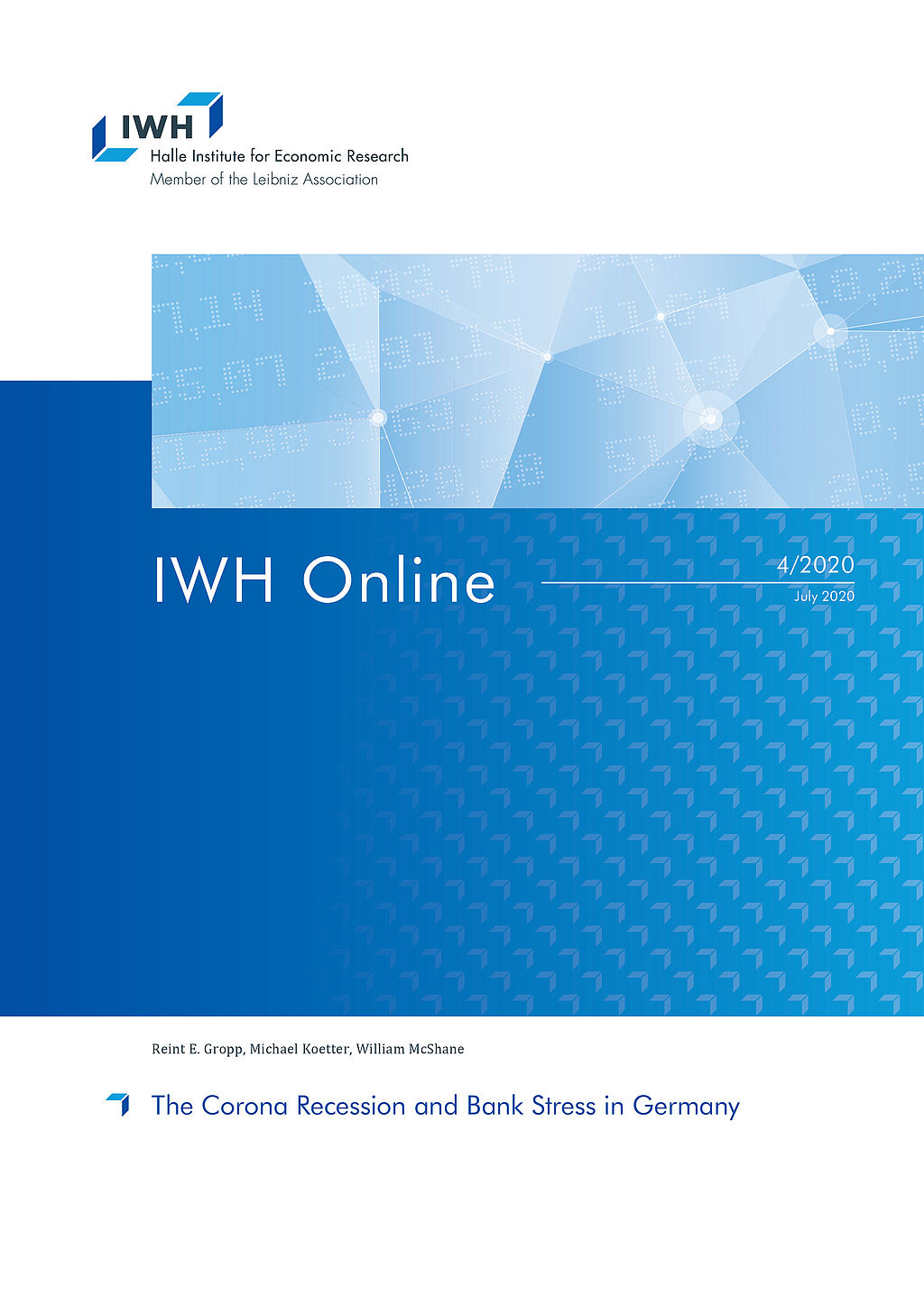IWH issues warning of a new banking crisis
The economic crisis caused by the coronavirus pandemic could massively affect the German banking sector. It is anticipated that thousands of companies throughout Germany will be unable to repay their loans. The loan defaults could impact Germany’s banks so severely that they themselves struggle to survive. In an optimistic scenario, in which the German economy recovers quickly, at least 6% and therefore dozens of domestic financial institutions would still be at risk. Whereas in a pessimistic scenario of a prolonged economic downturn, an analysis by the Halle Institute for Economic Research (IWH) shows that up to 28% and therefore hundreds of banks would face serious difficulties. A look at their balance sheets makes it clear how important these banks are for the economy. The loans held by these institutions amount to 127 billion euros in the optimistic scenario and 624 billion in a more pessimistic scenario.
“Even if things go very well for the German economy, we believe a new banking crisis is probable,” says IWH President Reint Gropp, who wrote the study along with the IWH financial market researchers Michael Koetter and William McShane. “Understandably, the state has recently been dealing with the real economy, but it should not overlook the potential threats which are lurking in the financial sector.” If many loan defaults occur and the core capital ratio of the affected banks thereby falls under 6%, they will be restructured, merged with other institutes or closed down altogether. In any case, it would be impossible for them to issue new loans. This could put an additional heavy strain on the already weakened real economy, says Gropp, warning: “The danger is quite high that a banking crisis could trigger a second recession.”
When the forecasted banking crisis will begin depends on several factors. For example, companies will delay insolvency while banks may conceal problem loans. Savings banks and cooperative banks in particular should expect loan defaults because they tend to lend to companies which are now doubly at risk. On the one hand, they are small and therefore generally more vulnerable than large companies. On the other hand, these companies in particular operate in sectors which have been hit hard by the coronavirus lockdown, such as retail and the hospitality industry.
Gropp recommends that federal policymakers and banking supervisory authorities prepare themselves now for the fact that the economic crisis may get worse. He says the state could compel banks to hold more core capital or help them to do so. Gropp goes a step further, stating: “We believe that a consolidation of the German banking market in which too many financial institutes have been vying for yields which are too low, would increase productivity in the medium term and thereby stimulate the economy. Using tax revenue to rescue the banks without systematically restructuring their corporate lending portfolio should be ruled out.”
The IWH researchers combined the key figures of more than half a million German companies with the balance sheet data of over 1,000 domestic banks. The sample covered 89% of savings banks, 81% of cooperative banks and 15 commercial banks, including all large systemically important financial institutions. The researchers investigated the extent to which the corporate lending portfolio of each bank is vulnerable to economic fluctuations. With the volume of loans which are likely not to be repaid in future, the researchers forecasted how much core capital of the banks will melt away.
Publication Reint E. Gropp, Michael Koetter, William McShane: The Corona Recession and Bank Stress in Germany. IWH Online 4/2020. Halle (Saale) 2020.
Whom to contact
For Researchers

President
If you have any further questions please contact me.
+49 345 7753-700 Request per E-MailFor Journalists

Head of Public Relations
If you have any further questions please contact me.
+49 345 7753-720 Request per E-MailIWH list of experts
The IWH list of experts provides an overview of IWH research topics and the researchers and scientists in these areas. The relevant experts for the topics listed there can be reached for questions as usual through the IWH Press Office.
Related Publications

The Corona Recession and Bank Stress in Germany
in: IWH Online, 4, 2020
Abstract
We conduct stress tests for a large sample of German banks across different recoveries from the Corona recession. We find that, depending on how quickly the economy recovers, between 6% to 28% of banks could become distressed from defaulting corporate borrowers alone. Many of these banks are likely to require regulatory intervention or may even fail. Even in our most optimistic scenario, bank capital ratios decline by nearly 24%. The sum of total loans held by distressed banks could plausibly range from 127 to 624 billion Euros and it may take years before the full extent of this stress is observable. Hence, the current recession could result in an acute contraction in lending to the real economy, thereby worsening the current recession , decelerating the recovery, or perhaps even causing a “double dip” recession. Additionally, we show that the corporate portfolio of savings and cooperative banks is more than five times as exposed to small firms as that of commercial banks and Landesbanken. The preliminary evidence indicates small firms are particularly exposed to the current crisis, which implies that cooperative and savings banks are at especially high risk of becoming distressed. Given that the financial difficulties may seriously impair the recovery from the Covid-19 crisis, the pressure to bail out large parts of the banking system will be strong. Recent research suggests that the long run benefits of largely resisting these pressures may be high and could result in a more efficient economy.



